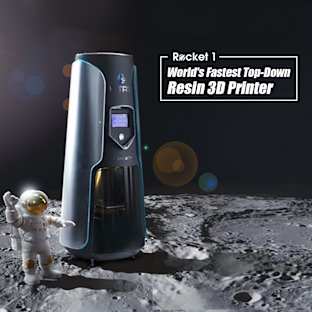TopLab: the first community biolab in Berlin
We are building TopLab: a community bio laboratory for curiosity, creativity, education and interdisciplinary research. TopLab serves as a platform for science, technology and art, where people have access to biotech classes and develop their own projects. Help us acquire the equipment needed to initiate our community and become an important part of our journey!
![]()
What is Top-Lab?
TopLab is supported by TOP e.V., an association for the promotion of cultural practice and social innovation which is situated at >top Schillerpalais, a project space in the heart of Berlin. Using borrowed, recycled and home-built equipment, we recreate a typical do-it-yourself biology (DIYbio) lab and bring biology to the public.
TopLab reframes the laboratory as a shared space, informal and inviting rather than sterile and exclusive. Through audience participation, the intention is to demystify biology and radically lower the barrier to participation in modern bioscience, allowing anyone to innovate and explore. This environment also encourages thoughtful examination and discussion of the implications and ethical questions surrounding cutting-edge bio-based technologies.
![]()
Our Story
We are launching this campaign to provide TopLab with the basic equipment used in a biology laboratory. This campaign is an important development for TopLab’s long journey ahead, which is to become an open space with the interest for sharing resources and overcoming those barriers given by the lack of professional facilities, equipment and access to public knowledge and practice. The community of the future depends on people like us who are initiating new era of science and providing new solutions and opportunities for the planet we live on.
Who is behind Top-Lab?
TopLab will be inhabited by various highly qualified and DIYbio practitioners who will work on their own projects and also provide opportunities for public participation through workshops and discussions.
Mirela Alistar
She is a biohacker actively involved in biotech research.
Flavia Barragan
She is a scientist interested in the intersection of art, science and technology. After more than 8 years working as a researcher in the field of Medicinal Chemistry, she is currently focusing her practice into the development of new Biomaterials, mostly grown from living organisms.
Tuce Erel
She is a curator, art writer and art professional, based in Berlin. Her curatorial interests are archiving practices, ecology, anthropocene, post-human and post-digital theories.
Mindaugas Gapševičius (miga)
He is an artist, interested in intersection between arts, technologies and sciences. Since four years he is interested in the emergence of life and interaction between organic and inorganic matter. Mindaugas Gapševičius (miga) is a PhD candidate and an artistic associate at the Bauhaus University, Weimar. Interested in DIYbio and beyond.
Christiane Hütter
She is an artist who analyses and (re)imagines systems with the means of play and storytelling. she has been working in many projects that aimed to science communication.. also she is working a lot on social fictions (e.g. With Society for Cultural Optimism/cultural optimism.org) or brueten.tumblr.de/a speculative design prototype of breeding an egg instead of being pregnant. A Biolab is a great opportunity for her to actually collaborate new projects in the social fiction field. And she thinks being informed of the real possibilities (and dangers) is crucial for taking decisions for the future. As individuals, groups and societies.
Alice Morey
She is a painter interested in the bridge between art and science. She has a strong interest in becoming self sustainable with the materials she use and she has started experimenting with growing her own. She is interested in decay and working with microorganisms that she can later use within her artistic practice.
Fara Peluso
Fara is an artist designer interested in the relationship between the human and its environment.
Liam Power
Liam is a graduate of fashion designer from Cape Town, South Africa now living in Berlin, Germany. He has an extreme interest in new and innovative materials that inspire a new direction for the role of clothing in our society. He wants to be apart of TopLab to explore how to develop bio-materials and to research how we can use materials that work with our environment and our lifestyle of today.
Alessandro Volpato
He is a biologist working on lab automation and designing systems for open and accessible science. He is interested in bridging communities and promote interdisciplinary collaboration to valorize each other's work.
Selection from our Perks
We provide three different toolkits, which are limited editions and signed by Mindaugas Gapševičius.
Toolkit 1: Bacterial cellulose
![]()
The toolkit has been designed in order to discuss symbiotic relations between organisms and to develop an awareness of interspecies dependency with participants. The Toolkit includes jars with chemical elements and ingredients, along with a sample of SCOBY in kombucha tea. It also has a set of necessary tools for trying to make bacterial cellulose in a practical way, including scales and a microscope.
Toolkit 2: Sun collaborations
![]()
The toolkit introduces the cyanotype, which is a photographic printing process producing a cyan-blue print and can be performed on a variety of papers and textiles. While the photo chemicals are painted onto the print surface in a dark room, the print itself is made outside, under direct sunlight. The process uses two chemicals: ammonium iron (III) citrate and potassium ferricyanide, which are both safe to handle and easy to obtain.
Toolkit 3: Plant conversations
![]()
The toolkit introduces an electronic circuit for capturing electrical signals in plants. All together, the proposed toolkit introduces interaction between interconnected elements of different natures. The user is invited to build an electronic interface and bridge it with the mycorrhizal fungi and the computer in order to hack the interaction between the cultivated heads of lettuce.
Workshops:
We will host workshops at TopLab and we offer 4 different of our workshops in our campaign.
Workshop 1
Let it glow! (by Mirela Alistar)
Living in a voluntary relationship with the sea animals, Photobacterium has developed a social sense directly connected to its bioluminescence. In this open workshop, everyone will influence the social life of Photobacterium in an attempt to make it glow. Practically, you will learn to culture the bacteria on agar plates and then grow it at home until it glows beautifully. Everyone is welcome to the workshop, that means also children and young adults. No prior knowledge is needed and all the materials are provided by us.
Workshop 2
Mycorrhizal networks or how do I hack plant conversations (by Mindaugas Gapševičius)
Fungi are able to biodegrade organic and inorganic elements, including slowly degradable elements such as cellulose, toxins, and heavy metals. Fungi are also known for being able to transport chemical elements within their networks and their ability to exchange chemical elements with plants. During the workshop, you will learn how to cultivate Oyster mushrooms and its mycelium. We will also think about possible uses for home and industry.
Workshop 3
Algature (by Fara Peluso)
Diatoms are photosynthetic microalgae that produce 20% of the oxygen on Earth. They are the most important little organisms that most people never heard of! Although tiny, diatoms play an immense role in keeping the planet’s ecosystem working. They’re important mediators of carbon and oxygen cycles, an integral component of marine food webs and the principal cycles of silica, which constitutes 25% of the Earth’s crust.
The workshop will show the general diatoms’ features (photosynthesis, aspects, colors…) and how you can cultivate them at home.
Workshop 4
Sustainable pigments (by Alessandro Volpato & Flavia Barragan)
Pigments are molecules that can be found in great abundance and diversity in plants. In this workshop you will learn to extract the from the plants and understand how to see them into a DIY spectrometer.
What is our budget?
The funds are raised to support new ideas and open projects that need equipment and reagents to enable scientific precision. The open space will increase the interest for sharing resources and overcoming those barriers given by the lack of professional equipment.
![]()


















































